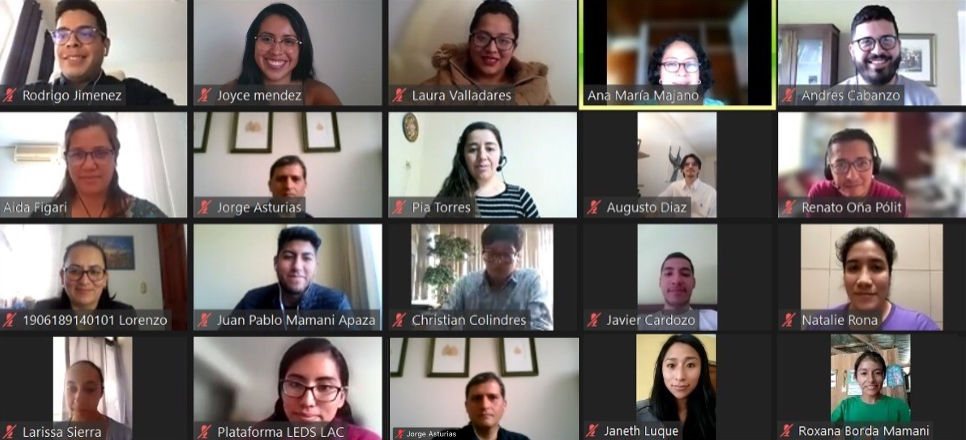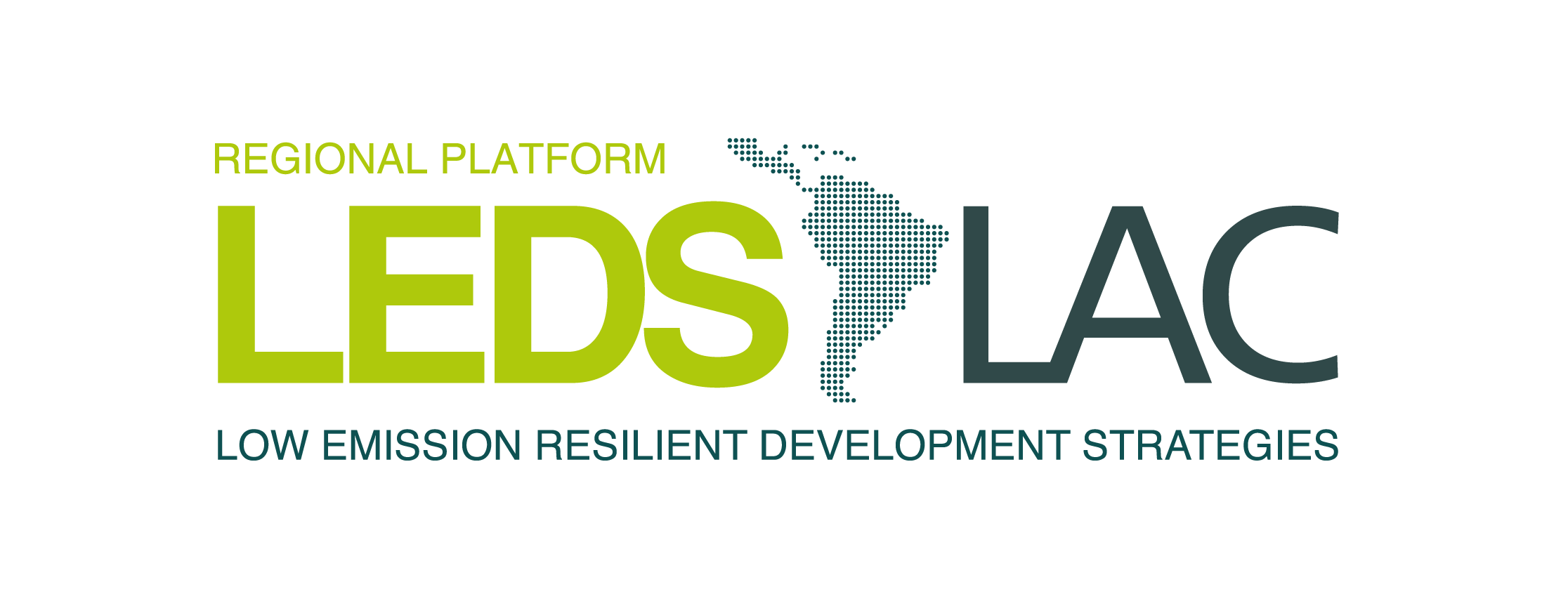Organized by:



On September 8, 2021, the first session of networking YSEH - LEDS GP - LEDS LAC, 23 Latin American members of the Youth Sustainable Energy Hub (YSEH) and experts in energy issues from LEDS Global Partnership and its regional platform LEDS LAC. The session sought to be a space to make professional connections between sustainable energy leaders of all ages in Latin America and the Caribbean. For YSEH young professionals, the session was an opportunity to connect with experts and professionals in the region who shared tips on how to expand their initiatives. For LEDS LAC members, the session was an opportunity to learn what young leaders in the energy sector are undertaking and gain inspiration from their innovative work.
The session was carried out in group dynamics of open conversation. Each group addressed one of three predefined topics and sought to answer the following guiding questions:
- Engagement with governments. In your opinion, what is the best way to establish and maintain productive working relationships with government institutions in the area of work or scope of your projects?
- Scaling up renewable energy initiatives. What is the future scenario for renewable energies? How to obtain support, partnerships and resources to expand the scope and coverage of your initiatives?
- Non-profit organizations in the energy sector. What are good examples of nonprofit involvement in advancing clean energy?
Two rounds of conversation were organized, which allowed for a rich and diverse exchange of experiences and best practices, questions and doubts, recommendations, connections and invitations. Some relevant points from each of the groups are described below.
As for the engagement with governments some important messages are as follows:
- The importance of establishing and strengthening links at different levels, from decision makers to the technical team, emphasizing that the latter normally survive government transitions.
- In the interactions that are generated with the government, whether as part of the implementation of projects or participatory processes, young people often perceive a hostile environment where they are discriminated against for being young. An approach with a proactive and service-oriented attitude was recommended and, as far as possible, having something concrete and of value to contribute to the opportunities for rapprochement. This could be innovative ideas, funds or other resources, access to training, relevant connections, among others. Emphasis was also placed on taking care of the quality of participation in the processes, which implies being prepared on the specific topic to be addressed.
- Approaching academia can also be a good entry point for young people. There are forums for young people to give their opinion and even collaborate in the development of knowledge products. All of this allows them to strengthen their capabilities, build relationships and gain experience.
- Among the tools currently available to young people, the advocacy and convening that they can achieve through social networks was highlighted, which is important at the policy level. It is also possible to build organized mechanisms to monitor compliance with international commitments or norms through observatories.
- Patience and care were recommended. Governments follow bureaucratic processes that have different rhythms than those of the private sector or of the young people themselves. Political contexts are complicated and one must learn to be neutral. Have very clear objectives and plans, communicate them with a lot of transparency, with concrete requests and at the right time and to the right people. And finally, knock on many doors knowing that there will be rejections.
In the group of scaling up renewable energy initiatives the following points emerged from the conversation:
- From a youthful point of view, the future looks bright for the energy transition in the region. Some Latin American countries are already leading the deployment of technologies to replace polluting options. For example, in the incorporation of renewable energies into the energy matrix, energy efficiency, the replacement of coal-fired stoves and the scaling up of rural electrification programs.
- One tool that has proven useful for increasing the engagement and ambition of various stakeholders is voluntary agreements. Some of the participants are currently working on Energy Compacts, which bring together the commitment of civil society organizations, governments, companies and international actors to undertake specific actions to meet Sustainable Development Goal 7, as well as the Paris Agreement.
- With regard to technology transfer, it was recommended that international cooperation and the private sector provide tools for the adaptation and creation of local solutions, thus reducing transaction costs and addressing the barriers that commonly impede the deployment and appropriation of new technologies.
- It is vital to recognize the importance and validity of pilot tests as facilitators of change, as sources of learning and as a first step to innovation and problem solving.
- To scale up sustainable energy initiatives, pending issues in the region include maintaining a constant dialogue with stakeholders, favoring investment and partnerships between public and private actors, redistributing incentives in favor of minority or disadvantaged groups, eliminating corruption, reforming fossil fuel subsidies, and shifting the paradigm towards long-term planning beyond government administrations.
Finally, in the third group on the involvement of non-profit organizations in the energy sector, various initiatives of organized civil society that are promoting the advancement of clean energy in the region were highlighted. Priority topics include:
- Youth education and capacity building (sustainable energy literacy);
- Conducting technology, regulatory, interconnection and energy planning studies;
- Energy access projects;
- Women as agents of change; and,
- Citizen observatories on energy and environmental policy.
About the organizers
The Youth Sustainable Energy Hub is the first global platform showcasing the work and impact of youth initiatives in the renewable energy sector. The YSEH aims to promote and inspire youth action, develop knowledge and skills, create opportunities, and encourage the exchange of best practices both among young professionals and between young people and industry leaders.
The LEDS Global Partnership (LEDS GP) is a platform driven by climate leaders from around the world that enables collaborative and ambitious climate action, peer-to-peer learning and innovation to scale actions and investments to advance Nationally Determined Contributions (NDCs) and long-term strategies. LEDS LAC is the LEDS GP regional platform for Latin America and the Caribbean and represents a space for exchange for representatives of government, cooperation agencies, NGOs, academia and the private sector, in order to move towards resilient and low-emission development.
